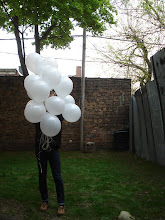this is one i didn't finish. also the book had to be published in the last ten years. also it was mainly about how i was writing it and not why, so it failed, because that's what fucking happens when you do that. suck a dick. alright. antagonistic sentences are done. feel like that is out of my system. ac/dc stopped playing. that's all i got.
1000 WORDS OR LESS ON PARTS OF PLAINWATER BY ANNE CARSON
PART II: SHORT TALKS
“Early one morning words were missing. Before that, words were not. Facts were, faces were. [So] I began to copy out everything that was said. The marks construct an instant of nature gradually, without the boredom of a story. I emphasize this. I will do anything to avoid boredom. It is the task of a lifetime. You can never know enough, never work enough, never use the infinitives and participles oddly enough, never impede the movement harshly enough, never leave the mind quickly enough.” [from the Introduction]
I wish the book were formatted differently. I wish each talk had its own page. That the world could feel as if it were being constructed slowly, one thing at a time. One brick. We can refer to each talk as a brick. It would allow each brick to add up together differently than they do when stacked one after another, like in the book. But it’s put out by Vintage, which is owned by Random House. Michael Ondaatje’s THE CINNAMON PEELER was also put out by Vintage, and it has terrible margins and the text never starts on the same line, so we can probably say it’s a thing with Vintage, and not Anne Carson. But it’s part of the book, it’s how it’s presented, and I wanted to talk about it.
PART IV: THE LIFE OF TOWNS
Anne Carson is a scholar of towns. This is what a scholar is:
. A scholar is someone who takes a position.
. The position a scholar takes is one from which certain likes become visible.
. A scholar simply knows where to stand to see the lines that are already there.
. A scholar does not make this up.
. A scholar is someone who knows how to limit themselves to the matter at hand.
This is what towns are:
. Towns are the illusion that things hang together somehow.
. Towns are also not empty.
. Towns are also different. Sometimes things that are the same are represented by
different things in different towns. Feel free to come up with your own
examples.

No comments:
Post a Comment